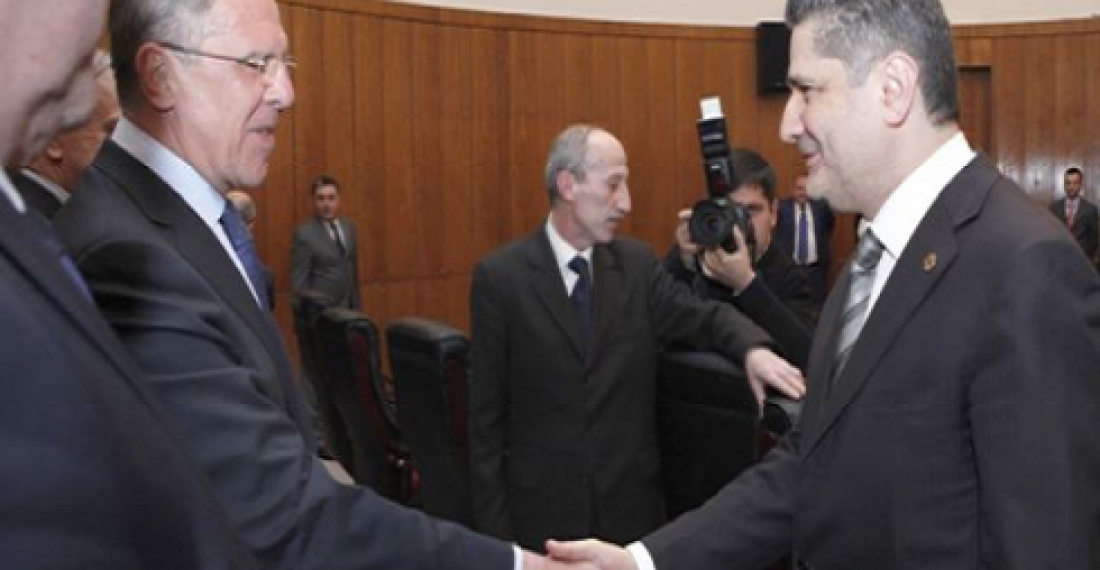Armenia's hard working Prime Minister Tigran Sargsyan has outlined the way his country is managing its relations with Russia and the EU in an interview with Kommersant. Armenia's choice is not always well understood, but the interview sheds some light on the strategy. Prime Minister Tigran Sargsyan has again ruled out Armenia’s accession to a customs union of Russia and two other former Soviet republics and said his country will continue deepening integration with the European Union. In an interview with the Russian daily “Kommersant” published on Wednesday, he also stated that Yerevan is ready to consider hosting a Russian military radar station currently located in Azerbaijan.
Commenting on the possibility of Armenian membership in the trade bloc formed by Russia, Kazakhstan and Belarus, Sargsyan reiterated his government’s argument that Armenia has no common border with any of the three countries.“That would make no sense,” he said. “The whole point of a customs union is to have commercial exchanges without customs control. In our case, that is impossible as we have to pass through the territory of a neighboring state and twice undergo customs administration.”
“Our Russian colleagues understand this situation. We are looking for ways of cooperation without the customs union,” he added.
The Armenian Prime Minister has been the main force pushing for for closer co-operation between his country and the European Union. He visited Brussels several times in the last year and has been credited with pushing forward the reform agenda in his country. Sarkisian told “Kommersant” that the Eastern Partnership is not aimed at weakening Russian presence in Armenia and elsewhere in the former Soviet Union. “We cooperate with both NATO and the EU,” he said. “These processes are not directed against a third party. Just as our strategic ties with Russia are not directed against the EU.” At the moment Armenia is negotiating a far-reaching Association Agreement with the EU. If agreed it will give the country for the first time a real choice in its foreign policy. In pursuing this Armenia needs to keep in mind its ally Russia.
“Our strategic partner Russia is aware of all of our cooperation programs, be it with the EU, NATO, the U.S., Iran China or Georgia. Russia shows understanding for this. We don’t have much choice in developing partnerships given our geopolitical situation and problems with neighbors,” added the Armenian premier.
Sargsyan highlighted Yerevan’s greater reliance on a military alliance with Moscow when he was asked whether it would agree to allow the Russian military to relocate a major early-warning radar station from Azerbaijan to Armenia. “Why not … If our territory is of such interest, we are ready to discuss this issue,” he said. Russia and Azerbaijan have been negotiating on a possible extension of the Russian lease on the Gabala radar station which is due to expire in December 2012. They have reached no agreement yet.
Commonspace.eu political editor said in a comment; "Armenia's choice is not going to be easy. For the EU this is not a zero sum game and a country in Association with the EU can equally have a strategic relationship with Russia. Conditionality is based on reforms and the implimentation of the democractic agenda. In this regard the test for the EU is the forthcoming parliamentary election in May and not any arrangement with Russia. However for the Russians it may be a different story. High on Putin's agenda when he returns to the Kremlin in May is going to be the new Eurasian Union which he has pushed during his election campaign. For Russia the participation of Armenia in such a Union may become a matter of prestige in which case Yerevan may have a problem on its hands."
source: commonspace.eu with Radio Liberty
photo: Armenian PM Tigran Sargyan in Yerevan on 2 April 2012 with Russian Foreign Minister, Sergei Lavrov (picture courtesy of Press Service of the Government of Armenia)







